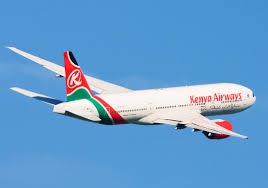- Home - News
- TWI News | TV
- Polls
- Year In Review
- News Archive
- Crime & Punishment
- Politics
- Regional
- Editorial
- Health
- Ghanaians Abroad
- Tabloid
- Africa
- Religion
- Election 2020
- Coronavirus
- News Videos | TV
- Photo Archives
- News Headlines
- Press Release
General News of Tuesday, 3 September 2002
Source: GNA
The poor must be considered in water privitization
Dr Charles Biney, Director of the Water Research Institute (WRI) of the Council for Scientific and Industrial Research on Monday said any attempt to privatise the water market must take into account the basic needs of the poor.
He endorsed Government's invitation to the private sector to participate in water service delivery but stressed that it must ensure that participants went by the rules for financial sustainability, transparency and efficiency.
Speaking to Journalists after delivering a paper on the Africa Water Vision at a four-day seminar on urban wastewater management, Dr Biney said private sector participation (PSP) in water service delivery should not attract a blanket price for consumers but it must consider the ability of the poor to pay.
More than 30 Stakeholders in the water sector, including those from the food and beverage industries, researchers, consultants, international water management experts and officials from the Environmental Protection Agency (EPA) are attending the seminar, which is underway at the Ghana Institute of Management and Public Administration (GIMPA).
The seminar, which is via satellite to Masters programme students in water management in the universities of Dar-Es-Salaam in Tanzania and the University of Zimbabwe, is being organised by the Civil Engineering Department of the Kwame Nkrumah University of Science and Technology and the Netherlands based UNESCO International Institute of Hydraulic and Environmental Engineering.
Dr Biney said there had been an improvement in urban water delivery system, but noted that treating and managing waste water had over the years been more expensive than production. He stressed that there was the need for stakeholders to adopt cost effective ways to the urban wastewater management problem.
Dr Biney said the Public Utilities Regulatory Commission (PURC) should not be the only agency to control water service delivery, but rather should team up with other sectors, such as the WRI the Water Sector Restructuring Committee (WSRC) among others institutions to regulate the delivery.
Dr Biney expressed concern over the high level of water contamination on the African continent and said this was the result of industrial pollution, poor sanitation practices, discharges of untreated sewage; solid waste thrown into drains and waste materials from refuse dumps.
"As a result, concentrations of waste frequently exceed the ability of rivers to assimilate them and water borne and water based diseases are widespread" he said, adding that the problem of environmental degradation went beyond poor water quality management.
Dr Biney indicated that the requirements for water quantities and quality had not been considered in the overall allocation of available water resources in a large part of Africa and warned that the important roles played by wetlands in many rural economies were being threatened by poor cultivation, deforestation and overgrazing.
He stressed the need to recognise that eco-systems supported life and said available water resources should be preserved for the support and sustenance of such systems.
Mr Nikoi Kotey, Executive Secretary of the National Accreditation Board, who opened the seminar on behalf of the Minister of Education, Professor Christopher Ameyaw-Akumfi, said attempts to address large quantities of wastewater in the urban centres had proved futile due to the lack of knowledge, financial constraints, lack of skills and incentives.
He announced that Government's was making efforts to construct more freshwater treatment plants and to improve on existing ones to cope with wastewater problems associated with urbanisation. Prof Ameyaw-Akumfi called for a comprehensive approach to wastewater treatment and re-use to include administrative and institutional framework within which all stakeholders must operate.










